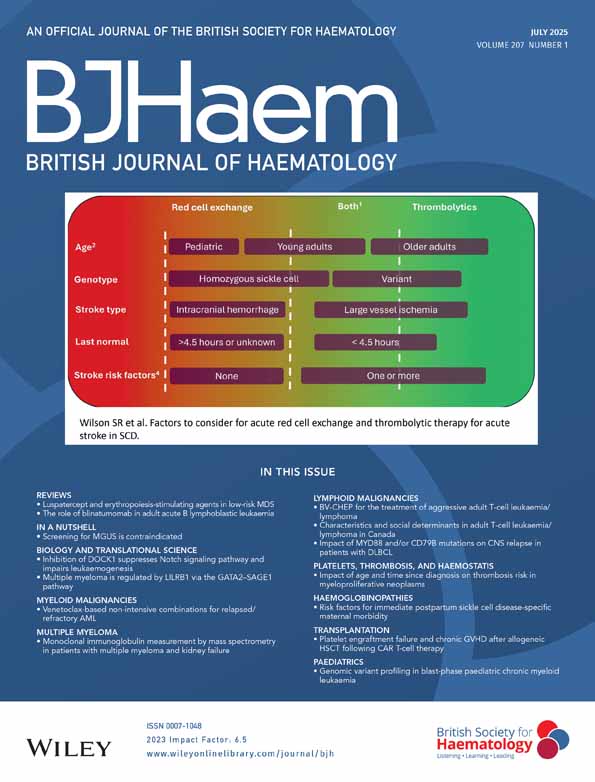The effects of interferon-α on the proliferation of CML progenitor cells in vitro are not related to the precise position of the M-BCR breakpoint
Summary
We investigated the effects of brief (2 h) and continuous exposure to recombinant interferon-α2a (rIFN-α) on the proliferation of primitive (blast colony-forming cells, Bl-CFC) and committed myeloid progenitor cells (BFU-E and GM-CFC) derived from blood and bone marrow of patients with chronic myeloid leukaemia (CML) and normal subjects. In all three clonogenic assays, rIFN-α suppressed colony formation in a dose-dependent manner. No differences were detected in the proliferation of CML or normal Bl-CFC and GM-CFC exposed to rIFN-α. Erythroid colony formation by normal, but not by CML BFU-E, was inhibited by relatively low concentrations (100 U/ml) of rIFN-α. However, in patients whose blood or marrow contained a mixture of Philadelphia chromosome (Ph)-positive and Ph-negative BFU-E, cytogenetic analysis of individual erythroid colonies showed no differential inhibition by rIFN-α. We found no difference in the sensitivity to rIFN-α of GM-CFC from patients whose leukaemic cells expressed BCR/ABL mRNA with the b2a2 junction and that of GM-CFC from patients with the b3a2 mRNA. We conclude that (1) rIFN-α does not have a significant leukaemia-specific effect on the progenitor cells detected in these assays, and (2) the sensitivity of CML GM-CFC to rIFN-α is independent of the type of BCR/ABL message present in the cells. The clinical efficacy of rIFN-α could be due to selective toxicity to cells not assayed in this study, to effects on accessory cells or to alterations induced in progenitor cell/stromal cell interactions.




